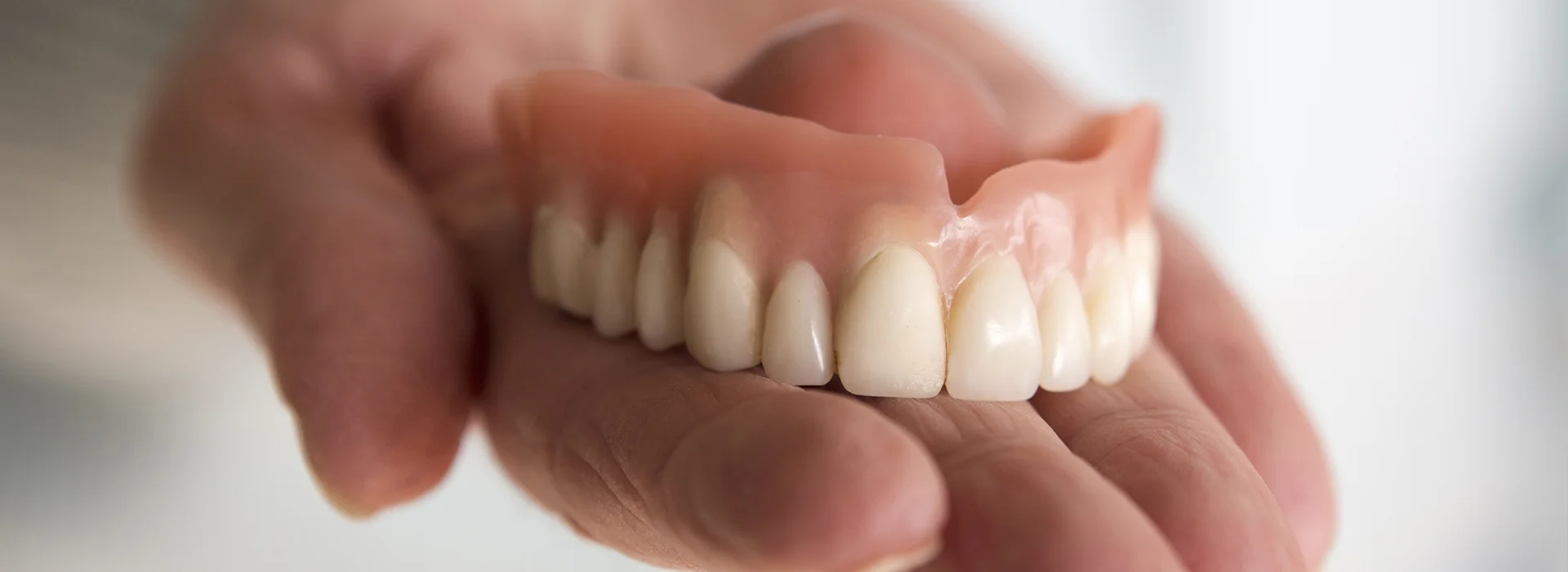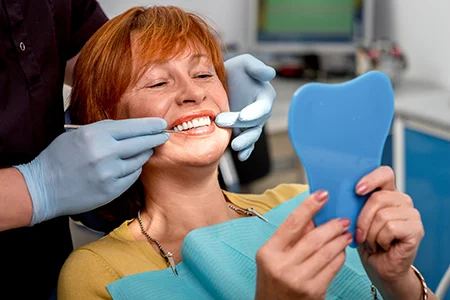Did you know that nearly 69% of adults between 35 and 44 have lost at least one permanent tooth due to accidents, gum disease, or decay? With so many people needing tooth replacement solutions, it's no surprise that dental mini implants have become a popular choice for restoring smiles.
While mini implants offer a minimally invasive and cost-effective alternative to dental implants , they also have their downsides. If you're considering this treatment, it's essential to understand both the advantages and disadvantages of mini dental implants to make the best decision for your oral health. In this post, we'll break down everything you need to know before choosing.
Advantages & Disadvantages of Mini Dental Implants: What Are Mini Dental Implants?
Mini implants are a modern solution for tooth replacement, offering a less invasive and more affordable alternative to traditional implants. Designed to restore missing teeth and improve denture stability, mini dental implants are commonly used when a patient lacks the bone density needed for full-sized implants or wants a quicker, more cost-effective option. These implants provide a secure foundation for mini tooth implants, helping patients regain confidence in their smile without extensive surgery.
Key Features of Mini Implants Dental
When considering mini implants, it’s essential to understand how they differ from traditional implants. Here are some of the key features that make them unique:
- Smaller than Traditional Implants: They are under 3mm in diameter, making them ideal for patients with less jawbone density.
- Minimally Invasive Procedure: They require no incisions or stitches, reducing pain and healing time.
- Placement: Most patients can receive a mini tooth implant in one appointment, skipping the lengthy healing process of traditional implants
- Great for Stabilizing Dentures: They offer a secure fit, preventing slippage and eliminating the need for adhesives.
Mini Implants and Mini Dentures: Are They the Same?
Are They The Same?
Many people assume that mini dentures and mini-implants are the same, but they serve different purposes in tooth replacement. While they work together, they are not interchangeable.
- Mini Implants: These are small titanium posts that function as artificial tooth roots. These dental mini implants are embedded into the jawbone to provide a stable foundation for replacement teeth.
- Mini Dentures: These are removable prosthetics that mimic the appearance of natural teeth. Instead of relying on adhesives, they snap securely onto mini implant dentures, creating a stronger, more comfortable fit than traditional dentures.
Mini Dental Implants vs Traditional Implants
Choosing between mini and traditional dental implants depends on jawbone density, treatment goals, and budget. While both serve as tooth replacement options, they differ in design, function, and durability. Below is a breakdown of their key differences.
Mini Dental Implants
- Smaller in size (less than 3mm in diameter)
- One-piece design (implant and abutment fused together)
- Less invasive placement
- Faster healing time
- Typically used for mini implant dentures and small teeth
Traditional Implants
- Larger and stronger (3mm+ diameter)
- Two-piece design (implant + abutment)
- Requires more jawbone density
- More durable and long-lasting
- Better for replacing molars and supporting bridges
Your dentist will assess your oral health and help determine whether dental mini implants or traditional implants best fit your needs.
Who Is a Good Candidate for Mini Dental Implants?
Not everyone is a perfect fit for mini implants, but they can be an excellent solution for certain patients. If you're considering dental mini implants, here are a few key factors determining whether they’re right for you.
Sufficient Jawbone Density
Unlike traditional implants, mini tooth implants require less bone structure, but there must still be enough jawbone to provide stability. If you have significant bone loss, your dentist may recommend a bone graft before placing mini dental implants in the jaw.
Missing Small or Multiple Teeth
Mini implants can be a great option if you're missing small teeth or need to replace multiple teeth in a row. They are especially effective for front teeth and other areas where a mini tooth implant can provide a natural look and comfortable fit.
Seeking a Less Invasive Option
Mini-implants are an excellent alternative for patients who prefer a minimally invasive procedure. They can often be placed in a single visit, require minimal healing time, and involve a more straightforward process than traditional implants, making them ideal for those who want a faster solution.
How Much Do Mini Dental Implants Cost?
The cost of mini implants depends on several factors. While they are generally more affordable than traditional implants, pricing can vary from patient to patient. Factors affecting the cost of mini implants include:
- Number of Implants Needed: The more mini tooth implants you require, the higher the overall cost. Each implant is priced individually.
- Dentist’s Location & Expertise: Prices can differ based on where you live and your dentist's experience level. More skilled professionals may charge higher fees for mini implants but often provide better long-term results.
- Additional Procedures: If you need tooth extractions, bone grafting, or gum treatments before getting a mini tooth implant, these extra steps will increase your total treatment cost.
10 Advantages & Disadvantages of Mini Dental Implants
Advantages & Idsadvantages of Mini Dental Implants
If you're considering mini implants dental professionals recommend, it's important to weigh the benefits and drawbacks before making a decision. While they offer a minimally invasive, cost-effective tooth replacement solution, they also have some limitations. Let’s break down the advantages and disadvantages of mini dental implants so you can determine if they’re the right choice for you.
Advantages of Mini Tooth Implants
Less Invasive Procedure
Unlike traditional implants, mini implants require no incisions or stitches, making the procedure much quicker and less painful for patients. The minimally invasive approach also reduces swelling and discomfort after placement.Faster Healing Time
Because mini tooth implants require only a tiny opening in the gum, the healing process is significantly faster than traditional implants. Most patients recover within a few days, allowing them to resume normal activities quickly.More Affordable Option
The mini dental implants cost is considerably lower than that of full-sized implants, making them a great budget-friendly option for those who need tooth replacement or mini implants for dentures. This cost advantage makes them accessible to a broader range of patients.No Bone Grafting Needed
Since mini-implants are smaller than traditional implants, they can be placed in areas with less bone density, eliminating the need for bone grafting. This is especially beneficial for patients with some bone loss who still want the benefits of dental mini implants.Improves Denture Stability
Mini implant dentures provide much-needed support for those struggling with loose or uncomfortable dentures. They prevent slipping and increase comfort, allowing patients to speak and eat confidently.
Disadvantages of Mini Tooth Implants
Less Stability
Because mini implants are smaller, they do not offer the same level of stability as traditional implants. They are best suited for stabilizing small teeth or dentures rather than high-pressure biting areas like molars.Shorter Lifespan
While regular dental implants Astoria can last 20+ years, mini dental implants have a shorter lifespan and may require sooner replacement. Proper oral care and routine checkups can help extend their durability.Not for Heavy Chewing
Since mini tooth implants are thinner and less durable, they are not recommended for patients who grind their teeth or need strong chewing power. Over time, excessive force can cause wear and tear, leading to implant failure.Difficult to Repair
If a mini tooth implant becomes damaged or fails, replacing it can be more complicated than fixing a traditional implant. Sometimes, a new implant must be placed, requiring additional procedures and costs.Higher Risk of Failure
Due to their smaller structure, mini-implants have a higher failure rate than traditional implants, particularly if placed under excessive stress. This makes them a less reliable option for patients needing strong, long-term tooth support.
How to Care for Mini Dental Implants
Proper care of dental mini implants is essential to ensuring their longevity and functionality. With the right oral hygiene routine and a few precautions, you can keep your mini tooth implant in great shape and avoid complications.
Proper Brushing & Flossing
Use a soft-bristled toothbrush and non-abrasive toothpaste to gently clean your mini tooth implants without scratching their surface. Floss daily around your mini implants to remove plaque buildup and keep your gums healthy.Avoid Hard & Sticky Foods
Chewing on hard candies, nuts, or sticky foods can put excessive pressure on your mini dental implants, increasing the risk of fractures or loosening. Stick to softer foods to protect your mini tooth implants from unnecessary strain, especially during healing.Regular Dental Checkups
Schedule routine visits with your dentist to monitor the health of your mini dental implants and the surrounding gum tissue. Regular exams and professional cleanings help detect potential issues early, preventing costly repairs or replacements.
Why Choose Smile4Me Dental Care for Mini Dental Implants?
At Smile4Me Dental Care, we understand that choosing the right dental provider for mini implants is a big decision. Our team is dedicated to offering high-quality, long-lasting solutions for patients looking to restore their smiles with mini tooth implants.
Expert Care for Mini Implants Dental Solutions
Our highly trained specialists have extensive experience with mini dental implants, ensuring a precise and comfortable procedure. Whether you need mini implant dentures to stabilize loose dentures or a mini tooth implant to replace a missing tooth, we use cutting-edge techniques to deliver the best results.Affordable Pricing with Financing Options
Are you worried about the cost of mini implants? At Smile4Me Dental Care, we believe everyone deserves access to high-quality dental care. We offer flexible financing options to make mini implant dental treatments more affordable. Our team will work with you to find a payment plan that fits your budget so you can restore your smile without financial stress.Specialists in Mini Implants for Dentures and Tooth Replacement
If you struggle with loose or uncomfortable dentures, our mini implants for dentures provide a secure and lasting solution. Unlike traditional adhesives, mini denture implants keep your prosthetic firmly in place, offering improved comfort and functionality. Our mini tooth implants also provide a strong and natural-looking replacement for patients missing a single tooth.Convenient Location with a Trusted Reputation
As a leading dentist in Astoria, Smile4Me Dental Care is known for providing exceptional care in a welcoming environment. Our reputation for high-quality dental implants and compassionate service makes us the go-to choice for patients.
Conclusion: Understanding the Advantages & Disadvantages of Mini Dental Implants
In conclusion, although mini dental implants offer a less invasive, more affordable, and quicker solution for tooth replacement and denture stabilization, they also have some limitations. The disadvantages of mini dental implants include less stability, a shorter lifespan, and a higher risk of failure than traditional implants. However, mini tooth implants can be an excellent option for the right candidates.
If you're considering dental mini implants, the team at Smile4Me Dental Care is here to help. We offer expert care, flexible financing, and same-day appointments to make your treatment smooth and stress-free. Book your consultation online today or walk in for same-day service. We’re ready to help restore your smile!
FAQs About Advantages & Disadvantages of Mini Dental Implants
What is a mini implant in dentistry?
A mini implant is a small, one-piece implant that replaces small teeth or stabilizes dentures.
What is a mini dental implant cost?
The cost of mini implants ranges from $500 to $1,500 per implant, depending on the case.
What are the biggest disadvantages of mini dental implants?
The main disadvantages of mini dental implants are their reduced stability, shorter lifespan compared to traditional implants, and increased likelihood of failure over time.
What’s the difference between mini implants vs regular implants?
Mini implants are smaller, less invasive, and more affordable, while regular implants are stronger, more stable, and last longer.
What are mini denture implants?
Mini denture implants are small titanium posts placed in the jawbone to anchor mini dentures securely. Compared to traditional removable dentures, they provide improved stability and comfort.
FAQs About Smile4Me Dental Care
What mini implant services does Smile4Me Dental Care offer?
We offer mini dental implants, single dental implants, All on 4 dental implants , All on 6 dental implants , and full-mouth restorations.
Does Smile4Me Dental Care provide financing for mini dental implant costs?
Yes! We offer flexible financing options to make treatment affordable.
Where is Smile4Me Dental Care located?
Our office is in Astoria, Queens, at 31-57 Steinway St, Queens, NY 11103.
Does Smile4Me Dental Care accept walk-ins?
Yes! We welcome walk-in patients for consultations and emergency dental care.





